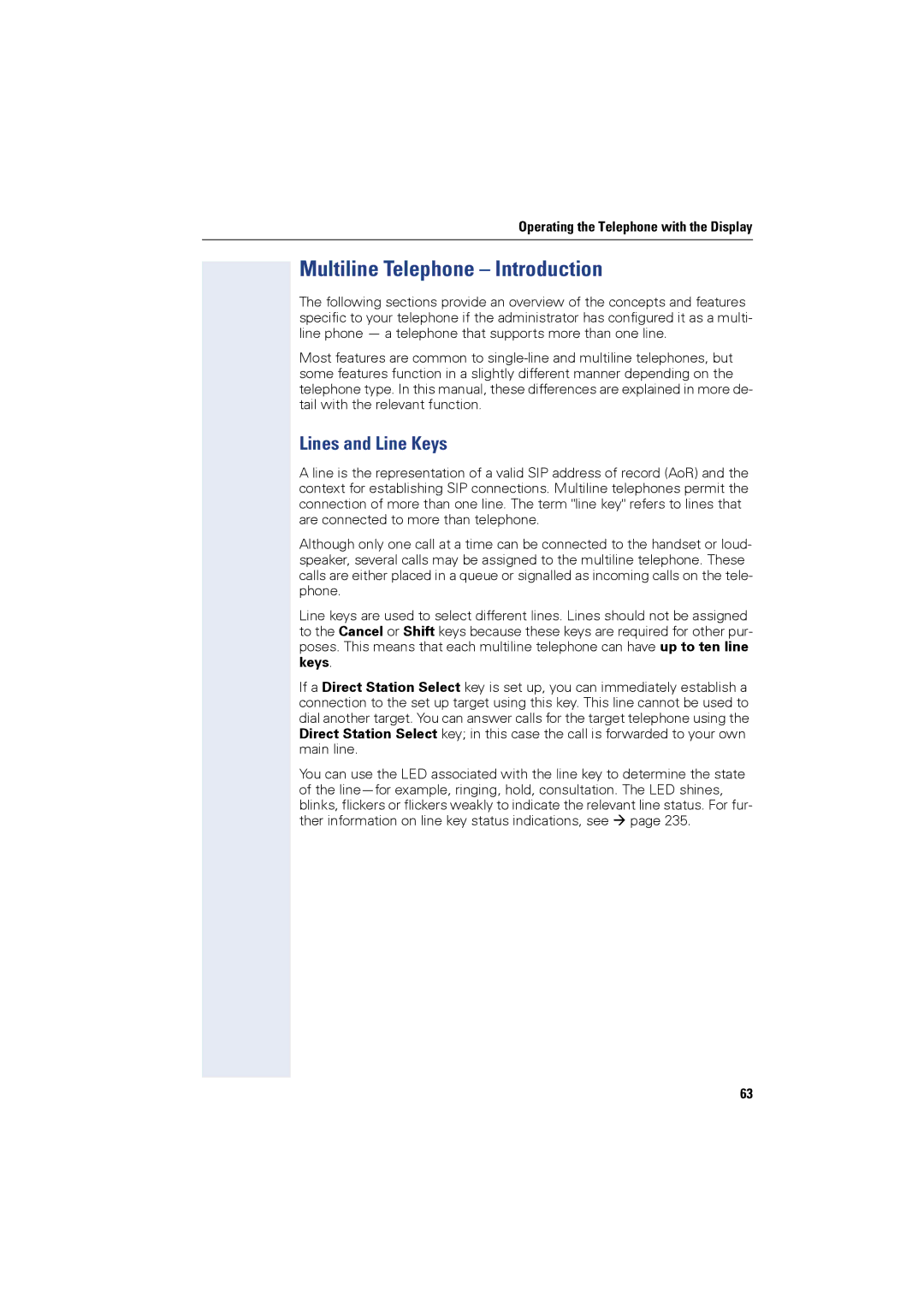
Operating the Telephone with the Display
Multiline Telephone – Introduction
The following sections provide an overview of the concepts and features specific to your telephone if the administrator has configured it as a multi- line phone — a telephone that supports more than one line.
Most features are common to
Lines and Line Keys
A line is the representation of a valid SIP address of record (AoR) and the context for establishing SIP connections. Multiline telephones permit the connection of more than one line. The term "line key" refers to lines that are connected to more than telephone.
Although only one call at a time can be connected to the handset or loud- speaker, several calls may be assigned to the multiline telephone. These calls are either placed in a queue or signalled as incoming calls on the tele- phone.
Line keys are used to select different lines. Lines should not be assigned to the Cancel or Shift keys because these keys are required for other pur- poses. This means that each multiline telephone can have up to ten line keys.
If a Direct Station Select key is set up, you can immediately establish a connection to the set up target using this key. This line cannot be used to dial another target. You can answer calls for the target telephone using the Direct Station Select key; in this case the call is forwarded to your own main line.
You can use the LED associated with the line key to determine the state of the
63
